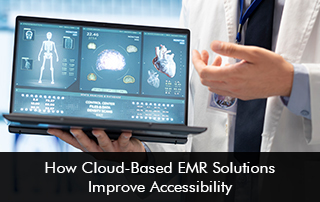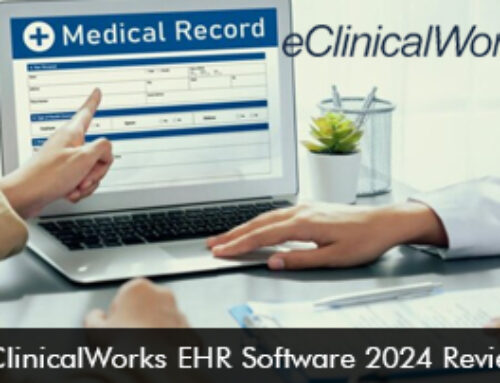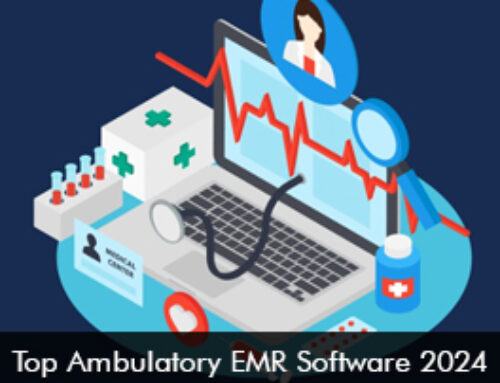The healthcare industry has rapidly evolved over the past few decades, and technology has played a huge role in this transformation. One of the major advancements is the adoption of cloud-based EMR (Electronic Medical Records) solutions. Cloud-based EMR software allows healthcare providers to securely store, access, and share patient data online, without the need for traditional, on-site servers. In this blog post, we will explore how cloud-based EMR software enhances accessibility and solves common issues faced by healthcare providers.
Introduction to Cloud-Based EMR Solutions
Cloud-based EMR solutions represent a new generation of healthcare technology that aims to improve the efficiency of medical practices by leveraging the power of cloud computing. Unlike traditional on-premises EMR systems, cloud-based EMRs do not require expensive hardware or local IT maintenance. Instead, data is hosted on a secure, remote server, allowing healthcare providers to access it from anywhere with an internet connection. This accessibility provides a major advantage for healthcare professionals, allowing them to offer better patient care while improving workflows. Whether you’re a small clinic or a large hospital, the benefits of using cloud-based EMR software are significant.
How Cloud-Based EMR Software Improves Accessibility
One of the main benefits of cloud-based EMR solutions is their ability to enhance accessibility for healthcare providers and patients alike. Let’s take a closer look at how this works.
- Remote Access Anytime, Anywhere: With cloud-based EMR software, healthcare providers can access patient data securely from anywhere, whether they are at the clinic, hospital, or even at home. This improved accessibility allows doctors to make informed decisions without being physically present in their office. It’s particularly helpful for telehealth consultations, where providers need to access records while interacting with patients virtually.
- Seamless Collaboration Among Providers: Another key benefit of cloud-based EMR solutions is that they allow multiple healthcare professionals to access and update patient records simultaneously. This makes it easy for specialists, primary care physicians, and other providers involved in a patient’s care to collaborate effectively, leading to better outcomes and a more holistic approach to healthcare.
- Improved Patient Engagement: Cloud-based EMR software also helps improve accessibility from the patient’s perspective. Patients can access their health records through patient portals, allowing them to stay informed and engaged in their own healthcare. This level of accessibility not only empowers patients but also enhances the overall quality of care.
Other Issues Cloud-Based EMR Solutions Solve
Beyond improving accessibility, cloud-based EMR solutions address several other issues faced by healthcare providers:
- Reduced IT Costs and Maintenance: Traditional EMR systems require on-site servers and significant IT resources to maintain them. With cloud-based EMR software, the need for costly hardware and maintenance is eliminated, reducing overall expenses and allowing healthcare facilities to allocate resources elsewhere.
- Scalability: As a healthcare practice grows, cloud-based EMR systems can easily scale to accommodate more providers, staff, or even additional locations. This scalability ensures that practices do not have to worry about outgrowing their EMR system or needing costly upgrades.
- Enhanced Security: Data security is a top priority for healthcare providers, and cloud-based EMR solutions are designed with robust security features, such as encryption and role-based access controls. These features ensure that patient data is protected while still being easily accessible to authorized personnel.
- Disaster Recovery: Cloud-based EMR solutions also offer built-in disaster recovery features. Data is automatically backed up to secure, remote servers, ensuring that patient records remain safe in the event of a system failure, natural disaster, or other emergencies.
Top Cloud-Based EMR Software
Here are some of the top cloud-based EMR software options available today:
- Athenahealth: Known for its user-friendly interface and robust features, Athenahealth is a popular choice among healthcare providers of all sizes. It offers powerful analytics, patient engagement tools, and seamless integration capabilities.
- eClinicalWorks: eClinicalWorks is another leading cloud-based EMR solution that offers advanced features like telehealth integration, patient portals, and customizable templates. It is widely used by practices looking for a comprehensive, scalable solution.
-
Tebra: Tebra EHR software is designed to support independent practices. It offers integrated scheduling, billing, and patient communication tools, making it well-suited for small to mid-sized healthcare facilities.
- Epic: Epic offers a cloud-hosted version of its well-known EMR software. It is highly customizable and provides extensive features that support large hospitals and healthcare organizations.
-
CareCloud EHR: CareCloud EHR is a cloud-based solution designed to optimize patient care and improve workflow efficiency. It offers customizable features, revenue cycle management, and strong patient engagement tools, making it a great choice for practices looking to enhance their operations. Learn more about it here.







